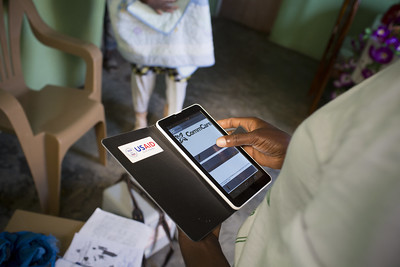
Accelerating Innovation, Performance, and Impact at USAID
Summary
The United States Agency for International Development (USAID) tackles some of the toughest challenges in some of the toughest places on earth, including fighting global pandemics, growing economic prosperity, strengthening democratic institutions, and providing humanitarian relief. USAID plays an important role in addressing global development problems that initially lack effective, scalable, and sustainable solutions. Yet USAID’s activities allow little room for the risk taking or iteration needed to drive significant improvements and encourage disruptive new ideas, with most programs implemented through detailed plans with rigid designs.
Imagine if the pace of progress for global development could match the breakneck pace of advances in the tech sector. The next administration should assess where current USAID interventions are inadequately meeting global need, applying best practices from innovation to improve programs accordingly. This will include shifting to outcomes-based performance metrics, dedicating budget for experimentation, establishing incentives that encourage risk-taking, linking payments with outcomes, and conducting ex-post evaluations of scale and sustainability.
To understand the range of governmental priorities for the bioeconomy, we spoke with key agencies represented on the National Bioeconomy Board to collect their perspectives.
Congress should foster a more responsive and evidence-based ecosystem for GenAI-powered educational tools, ensuring that they are equitable, effective, and safe for all students.
Without independent research, we do not know if the AI systems that are being deployed today are safe or if they pose widespread risks that have yet to be discovered, including risks to U.S. national security.
Companies that store children’s voice recordings and use them for profit-driven applications without parental consent pose serious privacy threats to children and families.